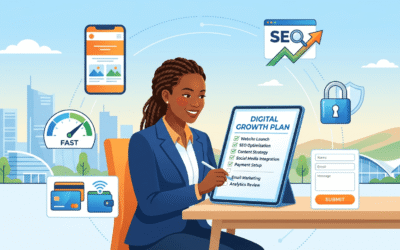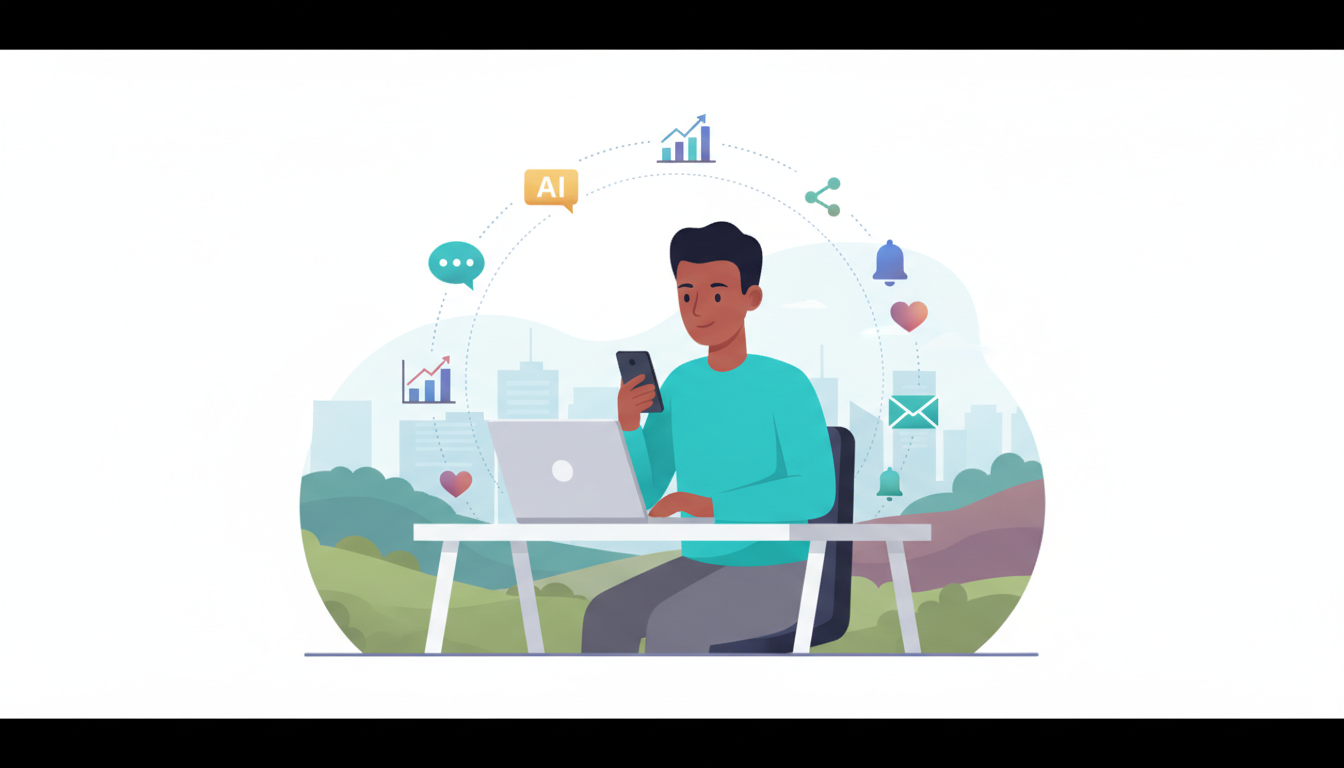In a world where digital marketing is increasingly competitive, artificial intelligence (AI) has emerged as the ultimate tool to amplify marketing efficiency. AI not only helps you reach qualified prospects but also does so in a way that is personalized, optimized, and predictive. Here’s a comprehensive guide to using AI to skyrocket your business’s marketing, with specific actions and essential success techniques to implement.
1. Automate to Increase Efficiency and Personalize Your Message
AI allows you to automate repetitive tasks and refine each interaction to meet individual customer needs.
- Automated Email Marketing: Platforms like Mailerlite and ActiveCampaign use AI algorithms to personalize content based on each subscriber’s preferences. For instance, if a customer visits a specific page, an automatic follow-up email can offer them a relevant offer or content.
- Smart Chatbots: Advanced machine learning-based chatbots (such as those from Chatbase, Drift or Intercom) can instantly respond to common customer questions, guide them through the purchase journey, and even close sales. A chatbot can be set up to offer 24/7 assistance, enhancing customer experience while freeing up your teams.
2. Improve Ad Targeting with AI
One of AI’s strengths is its ability to analyze vast amounts of data to target customers with pinpoint precision.
- Programmatic Advertising: With AI, you can set highly precise criteria (interests, purchase behavior, location) for your ads. Google Ads and Facebook Ads already integrate AI algorithms that analyze user behavior to deliver ads to those most likely to convert.
- Lookalike Audiences: By analyzing data from your top customers, AI can create “lookalike” audiences to extend your ad reach and attract new customers with similar characteristics to those who already buy from you.
3. Use AI to Anticipate Buying Behavior
AI enables you to predict future customer behavior, allowing you to offer relevant promotions at the ideal time.
- Lead Scoring: AI-based lead scoring systems (like those from HubSpot or Salesforce) analyze your prospects’ engagement and identify those most likely to become customers. This allows you to prioritize high-potential leads and avoid wasting resources on less engaged ones.
- Sales Forecasting: AI can analyze historical data and market trends to forecast your future sales. This information helps you adjust your marketing campaigns, prepare your inventory, and plan your resources accordingly.
4. Create Personalized and Relevant Content with AI
Content creation remains essential for engaging customers, but AI can improve its impact by adapting content to the specific needs of each audience segment.
- AI-Assisted Writing: Tools like Roboto AI, ChatGPT or Jasper can generate content adapted to different styles and marketing objectives. They help you produce blog articles, images(Roboto AI), product descriptions, or newsletters for your mailerlite campain, saving time while boosting productivity.
- Content Recommendations: Use solutions like Persado or Phrasee to generate content recommendations based on user data. These AI tools analyze past behaviors and suggest articles or products aligned with each customer’s interests.
You can use the chat file tool of Roboto AI to analyze your website’s giveaway record from google search to get articles that people are searching for to better improve your google ranking.
5. Analyze Customer Data for Informed Decisions
AI is a powerful lever for analyzing customer data, transforming raw information into concrete insights to optimize your marketing strategies.
- Sentiment Analysis: Tools like MonkeyLearn analyze customer feedback on social media or in emails to detect their sentiment towards your brand. This data allows you to address negative aspects and strengthen positive ones.
- Real-Time Monitoring and Optimization: AI enables you to track the performance of your marketing campaigns in real-time and automatically adjust them. For instance, an AI tool can detect if an ad isn’t performing as expected and immediately test another version.
6. Enhance the Customer Experience through Real-Time Personalization
AI enables real-time personalization, enhancing customer engagement and satisfaction.
- Website Personalization: Tools like Dynamic Yield and Monetate analyze online behavior and adapt website content in real-time. For example, a customer frequently browsing sports products will see specific recommendations and tailored promotions.
- Optimized Shopping Experience: AI-based recommendation systems, like those used by Amazon, analyze customers’ buying habits to suggest additional products they might like. This increases sales while enriching the shopping experience.
7. Explore New Channels and Trends with AI
AI also allows you to leverage new trends like voice search and voice assistant marketing.
- Voice Search Optimization: More and more consumers use voice assistants to find information. Adapt your content to be compatible with voice search by answering specific and concise questions.
- Voice Assistant for Customer Service: By integrating AI with voice assistants (like Alexa or Google Assistant), you can offer voice-enabled customer service. This makes interactions more natural and accessible, especially in low-connectivity environments.
Conclusion
AI represents an invaluable opportunity to transform your marketing. By integrating automation, advanced personalization, behavior predictions, and optimizing the customer experience, you can elevate your marketing strategy to the next level. To succeed, it’s essential to choose the right tools, constantly monitor your results, and adjust your strategies over time. Artificial intelligence is not just a technological gimmick but a powerful ally to propel your business and conquer new markets.
Share with us in the comment section your thinking about AI in your business.
If you need to use it in your business too like us, we’re available to help you. Just contact us




